In 2017, HHS declared a public health emergency to address the national opioid crisis. This included implementing a 5-point strategy. As a result, more funding went to treatment, and 1.27 million Americans are now receiving medication-assisted treatment.
With more than 14,000 substance abuse facilities all around the U.S., there is a solution for those who need assistance in getting off a drug they’ve become dependent on.
If you are trying to find help for your addiction, or are interested in Suboxone clinics, keep reading as we explain how Suboxone clinics can help.
Opioids and Opioid Use Disorder
Opioids are naturally occurring and synthetically made chemicals. When absorbed into the body, these chemicals interact with opioid receptors found in the brain and the body’s nerve cells. This interaction results in a reduction in pain for the user.
Commonly-known prescription opioids are oxycodone, morphine, codeine, and Vicodin. Synthetic opioids include methadone, tramadol, and pethidine, while heroin is a semi-synthetic opioid derivative of morphine.
While their primary purpose is to reduce pain, opioids can also cause feelings of euphoria and drowsiness. Over more extended periods of use, it can also cause mental confusion and constipation. In high doses, it can decrease respiration, which in some cases can be fatal.
There are three drugs to be particularly aware of on the market today: heroin, fentanyl, and carfentanil. The potency of fentanyl is 50 times that of heroin and 100 times that of morphine. The strength of carfentanil, an extremely potent analog of fentanyl, is approximately 10,000 times higher than that of morphine.
Opioid Use Disorder
Opioid use disorder is diagnosed by a medical professional when the patient exhibits two or more of the criteria specified in The Diagnostic and Statistical Manual of Mental Disorders, 5th Edition.
A lot of users indeed start by recreationally using opioids. Still, many others develop an addiction because they were prescribed the medicine and were not closely monitored or guided in its use.
Three medications are FDA-approved to treat opioid use disorder:
- Methadone
- Naltrexone
- Buprenorphine
Suboxone comprises naltrexone, which inhibits euphoric feelings from other opioids, and buprenorphine which blocks the opioid receptors in the brain. This reduces opioid withdrawal symptoms and decreasing cravings.
Each of these is only available through licensed practitioners or regulated clinics and is available in tablet or sublingual film form. Both forms need to be dissolved under the tongue to be correctly absorbed into the system.
Finding Treatment at Suboxone Clinics
Seeking treatment for opioid use disorder can be a daunting task. As a result, some never take the step, and some want to but don’t know what to expect or what to look for in Suboxone clinics.
How Suboxone Treatment Works
The first step in seeking Suboxone treatment will be seeking out a clinic specializing in medication-assisted treatment (MAT). MAT programs typically are combined with individual or group counseling or therapy sessions, and your progress is assessed at periodic intervals.
Once you’ve located a MAT clinic, you will need to make an appointment. This is where you’ll discuss everything with your doctor, including your drug history and motivation for getting sober.
It is crucial to your recovery to be 100% honest with your doctor. They’re not there to judge; they’re there to help.
If your doctor has approved you for Suboxone treatment, you begin your first dose at the earliest withdrawal sign. Doses typically start at around 8 mg and increase to 16 mg for most patients.
Included in your recovery treatment plan will be counseling sessions that you need to attend. This can be a combination of individual therapy, in a group, or a combination of both. Support groups like Narcotics Anonymous are also strongly recommended, and you may be required to obtain a sponsor.
Your doctor will eventually discuss tapering off the Suboxone so you can come off it entirely. This will be done over a gradual dose decrease; coming off “cold turkey” is never recommended.
Can I Afford Suboxone Treatment?
Unfortunately, Suboxone treatment is not cheap; however, most health insurance plans cover Suboxone treatment, or at least part of the cost, thanks to the Mental Health Parity and Addiction Equity Act. While this helps those who have insurance, many others still have to find the cash to pay for it out of pocket if they want to get sober.
Even if your health insurance plan covers Suboxone treatment, you may still have to get pre-authorization before your insurance covers any costs. This is why it’s essential to understand all the requirements specific to your plan. Pre-approval can take anywhere from a day to a week to process, and it’s vital to take this into account.
Without health insurance or government-subsidized programs, Suboxone can cost anywhere between $167 and $576 for a month’s worth of medication. This cost will depend heavily on the dose prescribed to each patient, and the higher the dose, the more expensive it becomes.
Can I Start Suboxone Before I’m Sober?
A good number of addicts come into the treatment center while they’re still high from their last use. Often, when they’re at their most desperate, they come looking for help. First, however, it’s essential to understand what can happen if you begin your treatment too soon after your last hit.
You need to be in a state of withdrawal to avoid adverse effects caused by Suboxone. If you take your first dose while you’re still high, you will experience an immediate onset of withdrawal. This can cause the following reactions:
- Cramping
- Sweating
- Diarrhea
- Nausea
- Body Aches
- Shivers
This is due to the chemical naloxone present in Suboxone, which blocks any other opioid in your system from reaching your opioid receptors.
Is Suboxone the Best Option For You?
Anyone suffering from the disease of addiction deserves to receive treatment if they want to stop using. How do you know if Suboxone is the proper treatment method is right for you? We are here to help you figure that out.
Contact us or visit one of our many Suboxone clinics to schedule an appointment, and you’ve already taken the first step to recovery.


